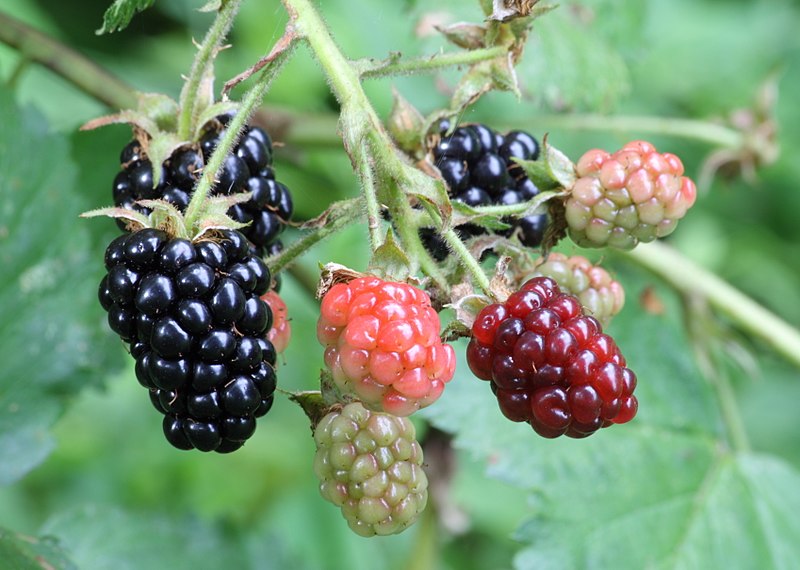Avestan varəda, New Persian gul 'rose' < Iranian *wr̥da- is a Wanderwort which spread to Armenian vard, Aramaic wardāˀ, Arabic ward1. The lazy Beekes considers Greek rhódon (Aeolic bródon) 'rose' < *wródon to be "certainly borrowed from the East", but he forgets to explain the Greek vocalism (ro instead of the expected **ar/ra).
In my opinion, the Greek word would be a substrate borrowing from a reflex of *wr̥d-o- in a language where r̥ > ro as in like Holzer's "Temematic"2. This protoform is the source of Germanic *wurθ-/*wurd- 'sweet briar (Rosa rubiginosa)' and Italic *ruθo- 'bramble (Rubus fruticosus)' > Latin rubus.
On the other hand, dialectal Italian (Tuscan) rasa, ràzina, razzola 'bramble' would be derived from Etruscan *raθia (glossed as radia by classical authors) < *rad-ja3. Also according to my amateur colleague Douglas Kilday, Latin rosa 'rose'4 would be a loanword from Etruscan *ruθia through the intermediation of Sabine *rodja.
Also Kartvelian *bardzg- 'thorns, thorny plant', *burdzg(a)- 'bristle' would descend from an earlier protoform *bardj-/*burdj- 'thorn', where the cluster *dzg would derive from a patalized dental stop *dj, according to the correspondences proposed by Bomhard5.
________________________________
1 R.S.P. Beekes (2010): Etymological Dictionary of Greek, p. 1289-1290.
2 G. Holzer (1989): Entlehnungen aus einer bisher unbekannten indogermanischen Sprach in Urslavischen und Urbalistischen. See also F. Kortland (2010): An Indo-European substratum in Slavic?, in Studies in Germanic, Indo-European and Indo-Uralic, p. 73-81.
3 This etymology would also explain Latin radius '(pointed) stick; light beam; wheel spoke' as a loanword from Etruscan.
4 Which Beekes considers to be "probably borrowed from Greek, but the details are unclear". Good gracious!
5 A. Bomhard (2008): Reconstructing Proto-Nostratic, vol. 2, p. 237-243.

No comments:
Post a Comment